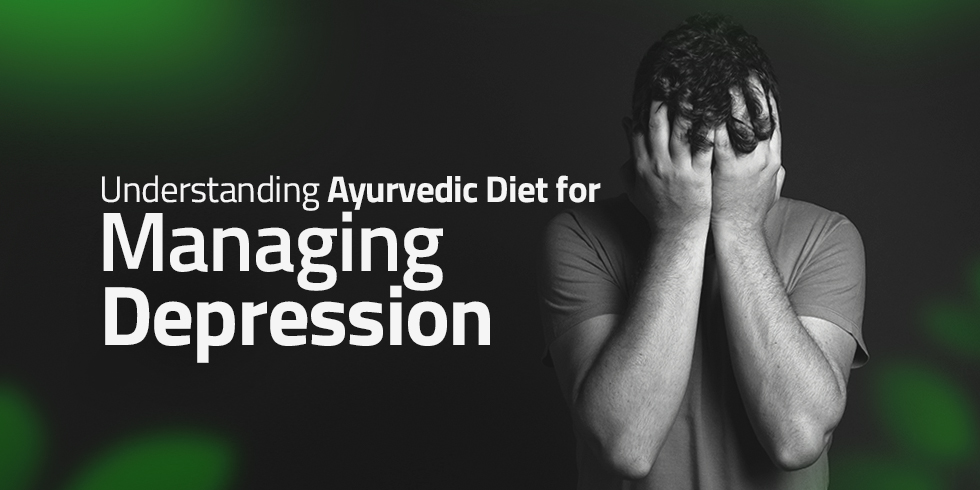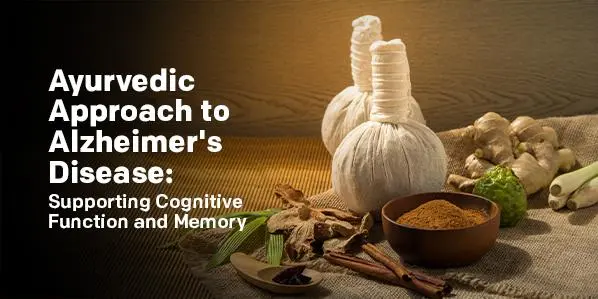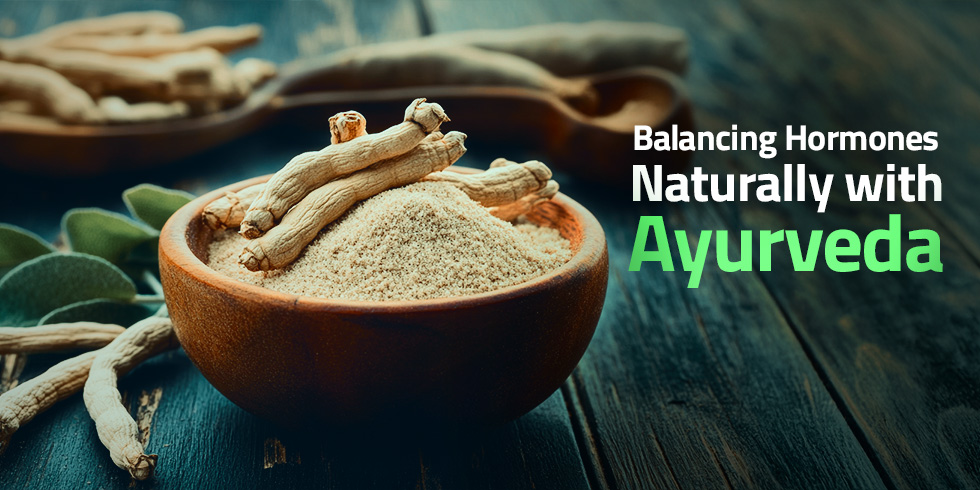Understanding Ayurvedic Diet for Managing Depression
The “Department of Manasaroga evam Manovigyan,” >which focuses on psychological disorders in Ayurveda, underlines the importance of dietary and lifestyle changes to manage conditions like depression. As we move towards a fast lifestyle with unimaginable challenges and stress, something as simple yet effective as Ayurveda is sure to help us cope with depression.
Hence, in this blog, we’ll talk about Manasaroga evum Manovigyan and how Ayurvedic practices can help improve your mental health.
Principles of Ayurvedic Diet for Managing Depression
An Ayurvedic diet for depression focuses on nourishing the body while balancing the doshas. The fundamental principle is consuming foods that are Satwik (pure, natural, and vital) promotes clarity, happiness, and calmness. The diet advises against Rajasic (stimulating) foods or Tamasic (dull or stale), as they can disturb mental harmony.
A balanced Ayurvedic diet includes six tastes: sweet, sour, salty, bitter, spicy, and astringent. Incorporating all these tastes in each meal helps in achieving dosha balance, which is pivotal in managing mood fluctuations and emotional disturbances associated with depression.
Foods to Include and Avoid in an Ayurvedic Depression Diet
Foods to Include
- Whole grains, such as oats, quinoa, and barley, are high in B vitamins, which support nerve health.
- Green vegetables, like spinach and kale, are rich in folate, a nutrient linked to mood regulation.
- Dairy, like fresh dairy products, can be calming and nourishing for the mind.
- Nuts and seeds, including almonds and flaxseeds, provide omega-3 fatty acids essential for brain health.
- Fruits like avocados and berries are rich in essential vitamins, minerals, and antioxidants.
Foods to Avoid:
- Processed foods and sugars: can lead to energy spikes and crashes, affecting mood stability.
- Heavy meats: especially if you are Kapha dominant, as they can increase sluggishness.
- Caffeine and alcohol: these can disturb sleep and can lead to mood disturbances.
- Leftovers or overly spicy foods: as they can increase the Doshik imbalance, particularly Pitta and Vata.
Seasonal Considerations in Ayurvedic Diet
Ayurveda emphasizes aligning one’s diet and lifestyle with the rhythms of nature. Seasonal eating is not just about enjoying fresh produce; it’s also about helping the body adapt to environmental changes, which can influence mental health.
-
-
- Spring: This season is ideal for lighter foods to counteract the heaviness of Kapha. Include leafy greens, berries, and seeds supporting liver detoxification and uplifting mood.
- Summer: Focus on cooling and hydrating foods like cucumber melons and cooling herbs like mint and fennel to balance the Pitta dosha, which can often lead to irritability and anger when out of balance.
- Autumn: With Vata dosha predominant, integrate grounding and nourishing foods such as root vegetables, nuts, and whole grains to stabilize mood swings and anxiety.
- Winter: To combat the cold and dampness, incorporate warming spices like ginger and black pepper and energy-dense foods like avocados and sweet potatoes to maintain energy levels and mood stability.
-
Emotional Eating and Ayurveda
Detoxification, or Panchakarma, is a cornerstone of Ayurvedic therapy. It involves a series of procedures designed to clear the body of toxins and restore Doshik balance. A properly conducted Panchakarma can improve overall vitality, directly affecting mental health. An experienced practitioner supervises procedures like therapeutic vomiting, purgation, enemas, and nasal administration.
Integrating Aromatherapy with Ayurvedic Practices
Aromatherapy can be a powerful ally in managing depression. Essential oils such as lavender, rose, sandalwood, and jasmine can be used in various ways:
-
-
- Inhalation: Direct inhalation or a diffuser can help calm the mind and reduce stress.
- Topical application: Oils diluted with carrier oils can be applied on the skin for a calming effect.
- Bath therapy: Adding a few drops of essential oil to a warm bath can provide a soothing experience.
-
Community and Social Support in Ayurvedic Care
Ayurveda acknowledges the importance of social connections in healing. Engaging with a supportive community can enhance the therapeutic effects of Ayurvedic practices. Participating in group activities such as yoga classes, meditation groups, or even community cooking classes can provide emotional support and decrease feelings of isolation.
Role of Herbs, Spices, and Supplements in Supporting Mental Well-Being
Ayurveda uses a variety of herbs and spices that are thought to enhance mental clarity and stability. Some of the commonly used herbs include:
-
-
- Ashwagandha: Known to reduce stress and anxiety.
- Brahmi: A brain tonic that improves memory and cognitive functions.
- Turmeric: Contains curcumin, which has potent anti-inflammatory and antioxidant properties.
- Saffron: Often used for its antidepressant properties.
- Gotu Kola: Believed to enhance mental function and alleviate depressive symptoms.
-
These herbs can be incorporated into the diet or taken as supplements under the guidance of the best ayurvedic doctor in Vadodara or wherever a qualified practitioner is available.
Lifestyle Practices to Complement the Ayurvedic Diet for Depression Management
In addition to dietary changes, certain lifestyle practices are recommended to support mental health:
-
-
- Regular exercise: which can improve mood and reduce anxiety.
- Yoga and meditation: Both are integral to Ayurveda and help maintain mental equilibrium.
- Adequate sleep: Essential for emotional and physical health.
- Routine: Establishing a regular daily routine helps balance the doshas and stabilize mood.
-
Conclusion
Managing depression through Ayurveda involves more than just taking the right foods. It is about creating a balance in one’s lifestyle and environment and nurturing positive social interactions and personal habits. For anyone looking to explore this path, it’s advisable to consult with the best ayurvedic doctor in Vadodara or elsewhere in India, who specializes in mental health for personalized guidance. Through these holistic practices, Ayurveda offers a compassionate and comprehensive approach to overcoming depression, restoring hope and happiness in one’s life.





